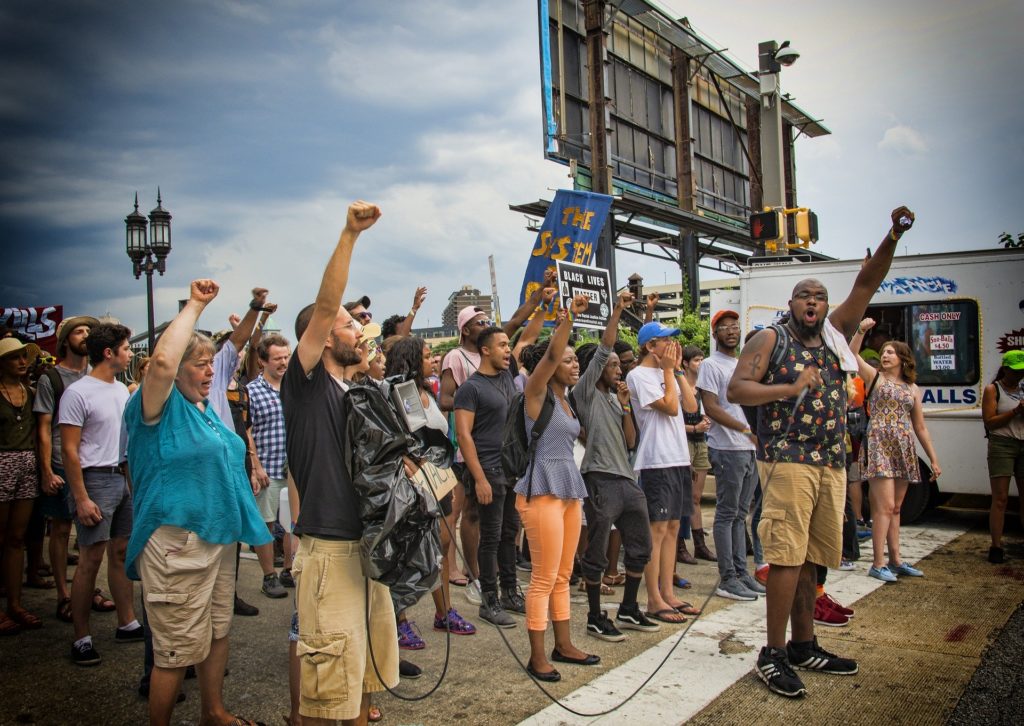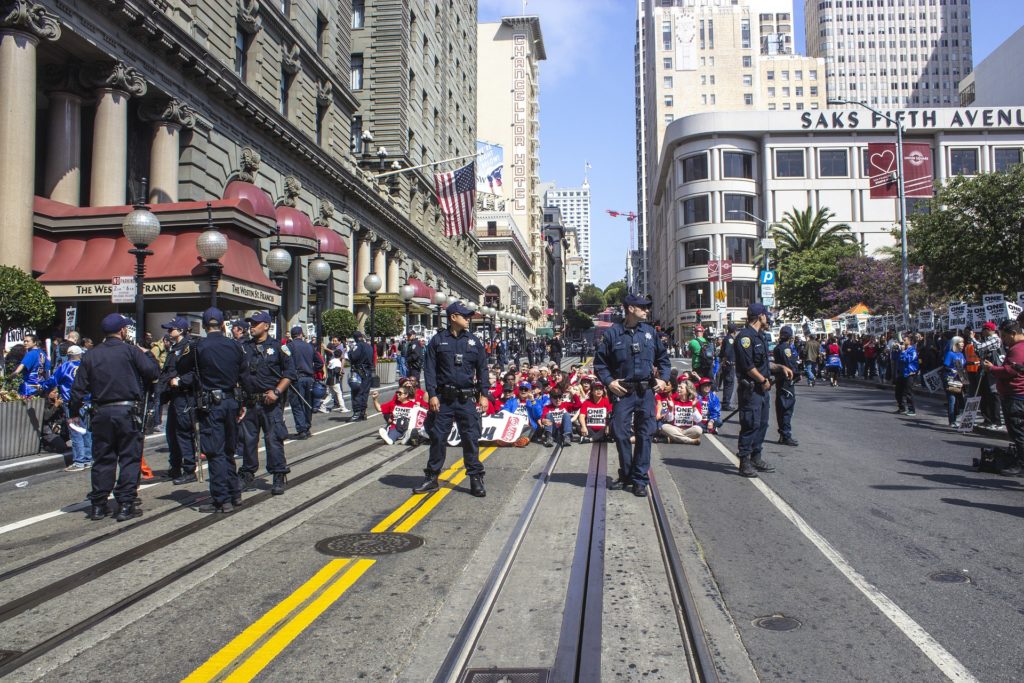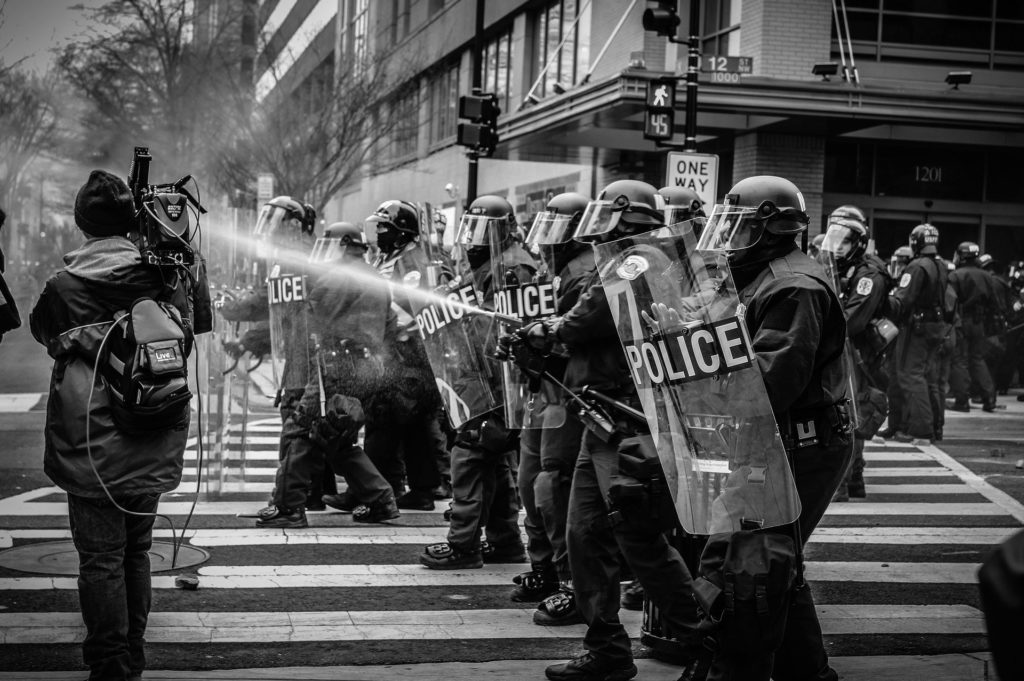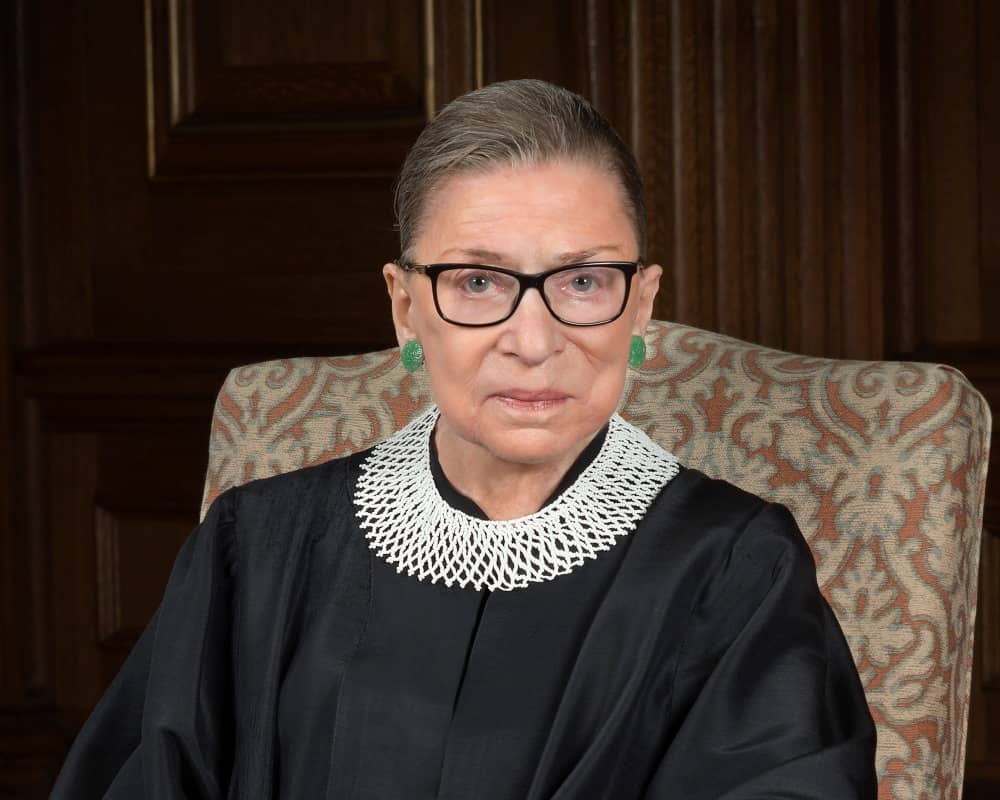Nov 28, 2020 | Civil Rights Law, Constitutional Rights, Police Misconduct
 When people think about police misconduct, the first thing that comes to mind is usually police brutality — and that’s understandable considering the vast amount of press coverage from cases like George Floyd this year. But there are many other ways that the police can and have engaged in illegal conduct and have violated people’s civil rights. It is important to understand what they can and can’t do so that you can protect yourself.
When people think about police misconduct, the first thing that comes to mind is usually police brutality — and that’s understandable considering the vast amount of press coverage from cases like George Floyd this year. But there are many other ways that the police can and have engaged in illegal conduct and have violated people’s civil rights. It is important to understand what they can and can’t do so that you can protect yourself.
Witness tampering and police misconduct
There have been many examples of the police getting caught in bad situations and then attempting to coerce witnesses to change how the evidence looks – for the police and the people police arrest. In Maui in 2015, Anthony Maldonado was accused of stealing $1800 from a person he had stopped. That right there is a crime, but after the victim reported it, Maldonado and several other officers tried to bribe the person to withdraw the complaint. Maldonado eventually pled guilty to witness tampering.
It is absolutely illegal for an officer to attempt use their power or authority as a police officer to attempt to get a witness to change their true testimony to something false or to unduly influence a complaining party to withdraw a complaint. But it happens all the time as officers have power and many people fall victim to their threats.
This type of misconduct can lead to criminal sanctions and even civil rights lawsuits for damages, if the conduct violates a persons’ constitutional rights.
Planting or fabricating evidence
If a case isn’t looking the way an officer thinks it should, they may decide to plant, fabricate, remove, or lie about evidence. One such example involves Richard Pinheiro, an officer in the Baltimore Police Department. His body camera actually caught him tampering with evidence at a crime scene. Unfortunately, fabricating evidence is a misdemeanor in Maryland so even though he was convicted, he is still on the job. Incidents like this also highlight the issue of bad cops being allowed to remain on the job.
Another example involved Michael Slager, an officer in North Charleston who shot and killed Walter Scott and then planted a taser near his body to back up his story that Scott was armed. Slager eventually received a 20-year sentence after a man came forward with a cellphone recording of the incident. Had a passerby not filmed the encounter, Slager likely would have gotten away with his crimes. This is one more example of why you should always record any police encounters you may witness.
This type of misconduct can lead to criminal sanctions if it is revealed, and possibly civil rights lawsuits for damages if the conduct violates a persons’ constitutional rights – such as when the lies/fabrications cause a person to be improperly jailed and/or prosecuted for a crime they didn’t commit.
When does police misconduct violate my civil rights?
While the behaviors mentioned above are definitely illegal, they do not always involve civil rights violations. For example, the most common civil rights violation applicable to manipulating or fabricating evidence is wrongful prosecution. However, in order to make that type of civil rights claim, there are several things you must be able to prove. For example, you must be able to show that the officer caused or continued a criminal prosecution where there was no probable cause to believe that a crime had been committed in the first place. You must also show that the officer created, planted, or lied about evidence that the prosecution relied on to prosecute the case. The criminal case against you must legitimately be terminated in your favor. You also have to be able to prove that the officer did all of this with malice and that it caused some sort of injury.
Reporting this type of misconduct so that appropriate criminal sanctions can be taken against officers is often the first step to getting bad officers removed from the police force. Filing civil rights lawsuits in appropriate circumstances is key to obtaining compensation when your rights have been violated. If you are faced with such circumstances, you want a lawyer that is 100% dedicated to understanding and helping you navigate these types of complexities.
We are here to help with protecting your civil rights
If you have experienced problems with your civil rights being violated by the police, please give us a call. We work diligently to protect civil rights. For a free, no-obligation consultation with the Civil Rights Litigation Group, contact our Denver CO law firm today at (720) 515-6165 or use our online contact form.
Jul 21, 2020 | Civil Rights Law, Constitutional Rights, Employee Rights
 Amidst all the civil rights protests lately, one divisive topic has emerged: Is it a violation of my civil rights for the government to require me to wear a face mask in public? In short, probably not. Because of the rapid increase in Covid-19 infections, many states have issued temporary laws, requiring all citizens (over the age of 11, in Colorado) to wear face masks. In Colorado, it applies while “entering or moving within any public indoor space [or] while using or waiting to use public (buses, light-rail) or non-personal (taxis, car services, ride-shares) transportation services.” You aren’t required to wear them in private residences or when outdoors, unless you are waiting for public transportation. Given the public-available data on the Covid pandemic, face-mask orders probably bear a reasonable relationship to the emergency and are probably legal, based on pre-existing case law.
Amidst all the civil rights protests lately, one divisive topic has emerged: Is it a violation of my civil rights for the government to require me to wear a face mask in public? In short, probably not. Because of the rapid increase in Covid-19 infections, many states have issued temporary laws, requiring all citizens (over the age of 11, in Colorado) to wear face masks. In Colorado, it applies while “entering or moving within any public indoor space [or] while using or waiting to use public (buses, light-rail) or non-personal (taxis, car services, ride-shares) transportation services.” You aren’t required to wear them in private residences or when outdoors, unless you are waiting for public transportation. Given the public-available data on the Covid pandemic, face-mask orders probably bear a reasonable relationship to the emergency and are probably legal, based on pre-existing case law.
Does the government have the legal authority to mandate face masks?
Probably. Since we are in the middle of a public health emergency, state and local officials have the authority to issue and enforce reasonable rules of safety. According to Colorado Attorney General Phil Weiser, “This has been upheld repeatedly. No one has the right to expose the community to communicable disease.” Likewise, Colorado Governor Jared Polis has emergency powers that grant him the right to issue the face mask mandate, and that authority is upheld by the Colorado state constitution (Article IV, Section 2). A law passed by the legislature: Colorado Disaster Emergency Act, CRS 24-33.5-701 also supports this.
A state government’s power to issue orders that are reasonably related to the protection of other citizens during public health emergencies has also been upheld by the Supreme Court. This has been the case since 1905, when the Supreme Court ruled on Jacobson v. Massachusetts. The case involved a smallpox outbreak and local authorities mandated that everyone had to be vaccinated against it or risk a fine (unless medically unable to do so safely). The court upheld this authority, saying, “Upon the principle of self-defense, of paramount necessity, a community has the right to protect itself against an epidemic of disease which threatens the safety of its members.”
“The public health expert consensus is that wearing a mask in public is a key countermeasure in combating the coronavirus pandemic because it helps slow the infection rate. Even cloth face masks can help curb community spread of coronavirus, in part by reducing transmission by people who are infected but experience no symptoms. The coronavirus pandemic is the kind of extraordinary circumstance when the public good outweighs individual inconvenience.” (Law.com)
To date, over 500,000 Americans have died from Covid-19, so it is likely within each state government’s authority to mandate necessary requirements issued for the purpose of protecting the health and safety of those who have not yet been infected, so long as those requirements relate directly to the cause at hand. Since Covid-19 has been shown to be spread by people breathing out tiny droplets that may contain the virus, face masks are likely to be considered a reasonable precaution. Face mask requirements are even more likely to be considered reasonable considering that many people who have the virus are asymptomatic and may unknowingly spread it to others. To date, the Supreme Court has had the opportunity to revisit this issue, several times, but has declined in all but religious liberty cases, where certain government’s have been deemed to have applied face mask mandates inequitably to religious institutions and/or religious activates, as compared to similarly situated secular institutions/activities.
Can I be required to wear face mask if I have a medical condition?
For those people “who cannot medically tolerate a face covering,” the ADA (Americans with Disabilities Act) requires that businesses, government entities, etc. make reasonable accommodations. Those may include offering delivery or curb-side pickup of things like groceries and goods, or offering online options for accessing services such as renewing a license. However, they aren’t required to allow you in their space without a mask, as that could endanger others.
The definition for those medically exempt from the order is pretty narrow: “a person who has trouble breathing or anyone who is unconscious, incapacitated, or otherwise unable to remove the cloth face-covering without assistance.” It doesn’t include people who believe the mask will cause them to breathe in carbon dioxide or lower their oxygen levels.
The ADA has also issued a warning against using fake mask exemption cards that have flooded the internet. “The ADA does not provide a blanket exemption to people with disabilities from complying with legitimate safety requirements necessary for safe operations.” (ADA website)

Can a business refuse me entry if I won’t wear a mask?
Not only can a business refuse you entry, but they may be required to as they are responsible for upholding the state and local laws for face masks and other safety measures. Again, they have to make reasonable accommodations for those with disabilities, so if you suffer from a disability, you should be prepared to make a specific request for accommodation that will not create an undue burden on the business. But as long as the business is enforcing the mask requirement equally to everyone, they are probably not violating your rights. Businesses are also required to post signage stating that masks are required. If you attempt to enter a business without a mask, you could be subject to allegations of trespassing. Likewise, businesses that do not enforce the ordinance may lose their license.
Can my employer require me to wear face masks?
Because of the mandate, employers must require all employees to wear masks. They have to make reasonable accommodations for employees with disabilities and should offer protection to those at a greater risk of severe illness due to Covid-19. Some employers may require employees to wear additional protective gear, such as gloves, and some are required to per Public Health Order 20-31.
If you are in a job that requires specific high-end protective gear like N95 masks, employers in Colorado are required to provide them. For all other businesses, government entities, etc. the Safer at Home public health order from March states that employers shall “provide appropriate protective gear like gloves, masks, and face coverings.” The newest public health order states that employers “should” provide protective equipment, but doesn’t specifically mandate it.
Regardless, employers are still required to provide workplaces “free from recognized hazards likely to cause death or serious physical harm” under the Occupational Safety and Health Act’s General Duty Clause. This is interpreted differently for each business and can include things like putting up clear barriers to protect employees who come in close contact with the public.
Other resources on our blog:
Additional resources:
Face-Covering Requirements and the Constitution
Colorado Mask Order: When Do I Need To Wear A Face Covering? (And More Mask Questions Answered)
Questions & answers about the statewide mandatory mask order
Considerations for Wearing Cloth Face Coverings
May 27, 2020 | Civil Rights Law, Constitutional Rights, Police Misconduct
 The most important thing to remember is that the First Amendment guarantees every person in America the right to peacefully assemble and protest.
The most important thing to remember is that the First Amendment guarantees every person in America the right to peacefully assemble and protest.
Congress shall make no law respecting an establishment of religion, or prohibiting the free exercise thereof; or abridging the freedom of speech, or of the press; or the right of the people peaceably to assemble, and to petition the government for a redress of grievances.
The right to protest is valued in our country and has led to many substantial changes over the past 200 years, such as the Civil Rights Act. When outrageous police abuse occurs — such as the killing of George Floyd in Minneapolis or the beating of Rodney King in Los Angeles — that conduct affects us all. Exercising your right to speak up and to protest could foster recognition, awareness, and much needed change in the future.
However, it’s important to remember that the Supreme Court has recognized limits to the exercise of our rights – when they could affect the rights of others. Just like freedom of speech doesn’t provide the right to publicly lie about someone or the right to yell fire in a crowded theater, the right to assemble does not mean that a protester has cart-blanche protection to commit otherwise illegal acts, such as vandalism, and there could be criminal repercussions for those who harm others.
Also, current law permits “reasonable time, place, and manner” restrictions by governments to limit some of the unintended adverse effects of those who gather to speak in local communities. Legal interpretations of what constitutes “reasonable” time, place and manner restrictions can be nuanced, but they usually permit municipal action to do things like restrict protesters from marching down the middle of busy streets or instituting non-discriminatory curfews to curb looting and vandalism. Protesters have more leeway regarding location and time when a protest is spontaneous, such as immediately after a major incident occurs that calls for public outcry, like the events in recent days. However, the protection for spontaneous association will likely be subject to greater “time, place, and manner” restrictions after initial protests erupt and/or after public safety concerns surface.

When can the police interfere with protests?
If a protest escalates to include violence and property damage, local law enforcement has the legal authority to intervene to quell that violence or to arrest perpetrators. They may also have the legal authority to stop protests on private property, those organized without a permit, or those that block public rights of way, such as on an interstate or major street.
As to the time or duration of protests, law enforcement can intervene if a curfew has been legally established and police have given you warning, time, and opportunity to safely leave. Police should act only to apply limited restrictions in a non-discriminatory and even-handed manner.
What am I allowed to record at a protest?
There have been a lot of contrary opinions written regarding what citizens can and can’t record, with respect to the police. And while some states have limits on where you can post recordings with audio, the visual part of recordings is protected by the First Amendment and can be posted online and shared.
You have a First Amendment right to record the police while they are performing public duties. As long as you aren’t interfering with or threatening them, and stay a fair distance away from officers performing official functions, the police DO NOT have the legal authority to demand that you stop recording. In fact, it’s always a good idea to record any encounter with the police if you think things might go bad for anyone involved. Phone recordings have been key in prosecuting police misconduct in recent years, especially with the quality of video that most cell phones can produce. As Will Smith said, “Racism isn’t getting worse, it’s getting filmed.”
Also, the police cannot legally demand your phone or confiscate it without a warrant, and those take time to obtain because they have to be signed by a judge. They also don’t have the authority to tell you to delete a photo or video. If you feel a confrontation may occur — especially one involving force — many have suggested complying, handing over the device, and then filing a complaint with Internal Affairs, the Office of the Independent Monitor (in Denver), or legal organizations like the ACLU or with local lawyers. But you absolutely have the right to retain possession of your phone along with any video or photos. If nothing else, quickly send or upload the media to someone before handing over your phone so that it cannot be deleted. The ACLU has developed a smart phone application that – once activated – will record and automatically upload any video taken from that phone to the ACLU for safe-keeping and later review:
https://www.aclu.org/issues/criminal-law-reform/reforming-police/aclu-apps-record-police-conduct
If you don’t like your own photo being taken or publicly shared, you should know that your presence at a public protest means you have given consent for your photo to be taken and potentially used, most commonly by the media. After-all, protests are meant to be matters of public interest. There are a few restrictions, but if you are uncomfortable with your photo showing up on social media or potentially the evening news, you should consider other forms of speech or wearing something that hides your identity.

What are the police allowed to do during a protest?
The first job of the police is to protect your right to peacefully assemble — both they and public officials have taken a vow to uphold the Constitution. If you are acting reasonably, within the confines of the law, then they have no authority to act against you or restrain you in any way. However, they are also charged with maintaining order and upholding the law, so if protesters or infiltrators start being violent or causing damage then the police will most likely take action. The concern for all of us is what form that action takes and whether it is proportionate to the public policy and/or legal justifications permitted under the law.
The main priority of police should be to de-escalate violence, but it has been shown time and again that the police often are the cause of violence. For example, if they start dropping tear gas canisters and firing rubber bullets at peaceful protesters before curfew has started, and without any legal and/or legitimate purpose, then they could be found liable for use of excessive force. This is one of the times when it is important to always be recording police on your phone.
What should I do if the police stop me or if I get arrested?
First of all, it’s always good to stay calm. Remember that sometimes the police just want to ask a question and you may not be suspected of doing anything wrong. The law permits police to ask questions without converting the contact into a seizure. Second, get your phone out and start recording. Finally, you always have the right to ask the police if you are being detained and/or free to go. If they indicate you are not being detained or are free to go, just calmly leave — you are under no obligation to speak to them. If they detain you, you have the right to ask why you are being detained.
If you are arrested or detained — whether justified or not — it’s best to remain calm and not resist. If other people are there, ask them to record everything they can. You do not have to speak to the police if you don’t want to — you have the right to remain silent. After you are booked, you will have the right to make a phone call so it’s a good idea to write a few numbers on your arm since your phone will be taken away. And it’s always a good idea to call a lawyer because while that conversation is privileged, the police do have the authority to listen in on calls to friends or family.
What should I do if I feel my rights were violated at a protest?
If you truly feel your rights were violated, the first step is always to gather evidence to support you. You have the right to sue for the violation of your rights and you should contact a civil rights attorney devoted to your rights. 42 U.S.C. Section 1983 of federal law permits those who are violated by official government actors (such as police) to seek redress in federal court. However, police officers are also covered by qualified immunity, which means they are shielded from civil liability if they didn’t break a clearly established law. That is one reason it is so important to record any interaction with the police as many of them are still not required to wear body cameras. Recordings remove much of the grey area of “he said, she said” when courts are charged with determining who is telling the truth. Video doesn’t lie.
We are here to help with protecting your Constitutional right to protest
If you have experienced problems with your civil rights being violated during a protest, please give us a call. We work diligently to protect constitutional rights. For a free, no-obligation consultation with the Civil Rights Litigation Group, contact our Denver CO law firm today at (720) 515-6165 or use our online contact form.
 Over the summer, Denver saw weeks of protests in reaction to the death of George Floyd. And, unfortunately, some police brutality. The majority of the protests in Denver centered around the Capitol and while most people came to protest peacefully, violence erupted, and many people were injured or exposed to chemical weapons. It now appears that protesters might not be as blameworthy as had been previously reported. A recent investigation has found that police may have needlessly caused some of the violence.
Over the summer, Denver saw weeks of protests in reaction to the death of George Floyd. And, unfortunately, some police brutality. The majority of the protests in Denver centered around the Capitol and while most people came to protest peacefully, violence erupted, and many people were injured or exposed to chemical weapons. It now appears that protesters might not be as blameworthy as had been previously reported. A recent investigation has found that police may have needlessly caused some of the violence.

 When people think about police misconduct, the first thing that comes to mind is usually police brutality — and that’s understandable considering the vast amount of press coverage from cases like George Floyd this year. But there are many other ways that the police can and have engaged in illegal conduct and have violated people’s civil rights. It is important to understand what they can and can’t do so that you can protect yourself.
When people think about police misconduct, the first thing that comes to mind is usually police brutality — and that’s understandable considering the vast amount of press coverage from cases like George Floyd this year. But there are many other ways that the police can and have engaged in illegal conduct and have violated people’s civil rights. It is important to understand what they can and can’t do so that you can protect yourself. When Associate Justice Ruth Bader Ginsberg passed away last month, she left an impressive legal legacy in her fight for civil rights. Throughout her career — both as an attorney and a judge — she fought everyone to have equal protection under the law.
When Associate Justice Ruth Bader Ginsberg passed away last month, she left an impressive legal legacy in her fight for civil rights. Throughout her career — both as an attorney and a judge — she fought everyone to have equal protection under the law. Most people can recognize sexist language as it’s often quite obvious, such as a man referring to a female employee’s looks, saying suggestive things about her, or calling her pet names like “honey” or baby.” But more often than not, it’s the subtle ways people use sexist language that can reveal gender bias or discrimination tendencies.
Most people can recognize sexist language as it’s often quite obvious, such as a man referring to a female employee’s looks, saying suggestive things about her, or calling her pet names like “honey” or baby.” But more often than not, it’s the subtle ways people use sexist language that can reveal gender bias or discrimination tendencies. Amidst all the civil rights protests lately, one divisive topic has emerged: Is it a violation of my civil rights for the government to require me to wear a face mask in public? In short, probably not. Because of the rapid increase in Covid-19 infections, many states have issued temporary laws, requiring all citizens (over the age of 11, in Colorado) to wear face masks. In Colorado, it applies while “entering or moving within any public indoor space [or] while using or waiting to use public (buses, light-rail) or non-personal (taxis, car services, ride-shares) transportation services.” You aren’t required to wear them in private residences or when outdoors, unless you are waiting for public transportation. Given the public-available data on the Covid pandemic, face-mask orders probably bear a reasonable relationship to the emergency and are probably legal, based on pre-existing case law.
Amidst all the civil rights protests lately, one divisive topic has emerged: Is it a violation of my civil rights for the government to require me to wear a face mask in public? In short, probably not. Because of the rapid increase in Covid-19 infections, many states have issued temporary laws, requiring all citizens (over the age of 11, in Colorado) to wear face masks. In Colorado, it applies while “entering or moving within any public indoor space [or] while using or waiting to use public (buses, light-rail) or non-personal (taxis, car services, ride-shares) transportation services.” You aren’t required to wear them in private residences or when outdoors, unless you are waiting for public transportation. Given the public-available data on the Covid pandemic, face-mask orders probably bear a reasonable relationship to the emergency and are probably legal, based on pre-existing case law.

